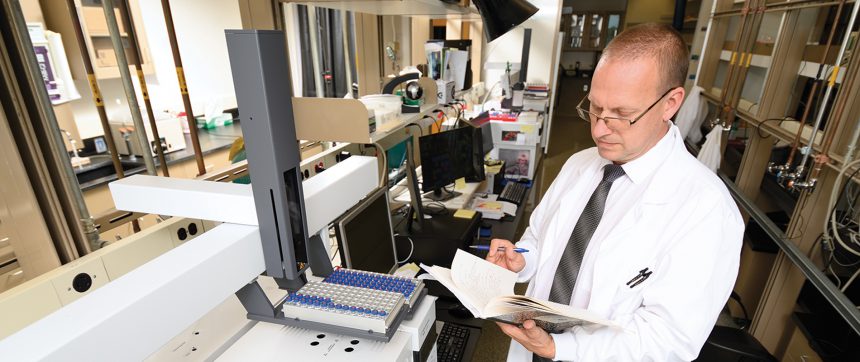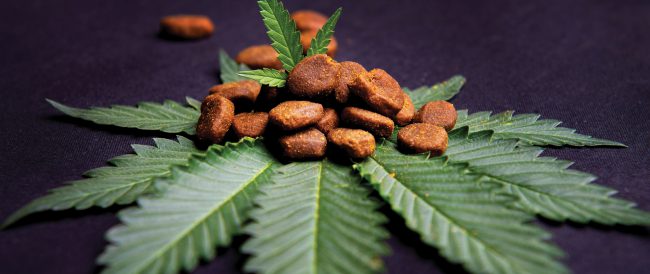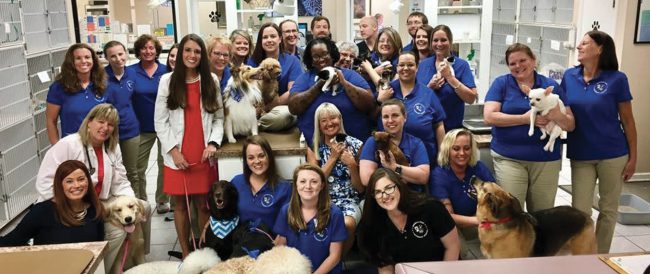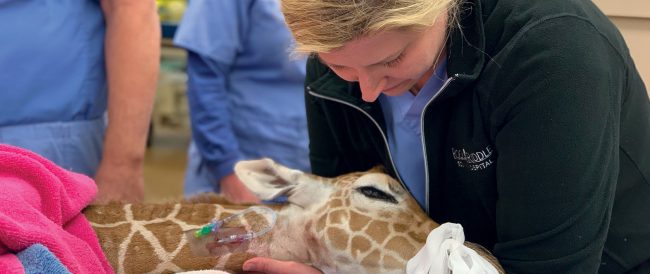 Read More
Read More
As part of the 2018 Farm Bill, the United States Congress removed hemp from the controlled substances list. This, combined with waves of local- and state-level marijuana decriminalization and legalization, has led to rapid growth in the cannabis industry. There has been plenty of talk about how this will affect humans, but what about companion animals?
Pets on Pot
There are two sides to this cannabis coin: hemp and marijuana. Both hemp and marijuana come from the cannabis sativa plant family, but their chemical compositions set them apart. Both contain THC (tetrahydrocannabinol) and CBD (cannabidiol). But, while marijuana contains high levels of THC, it is barely present in hemp.
THC is what gives marijuana its psychoactive properties, the “high” the plant is known for. It also happens to be toxic for dogs, cats, and horses. With increased legal access to medicinal and recreational marijuana and marijuana-infused products for people, veterinarians are seeing an unfortunate increase in cases of marijuana poisoning in pets. Throughout the past several years, the Pet Poison Helpline has seen a 448 percent increase in marijuana cases.

Dr. John Buchweitz, section chief of Toxicology and Nutrition at the Michigan State University Veterinary Diagnostic Laboratory, and his team test samples sent to them by veterinarians. “Predominantly,” says Buchweitz, “these are cases where pets—primarily dogs—have ingested a marijuana-infused edible or other product.”
Marijuana-infused edibles—like cookies, brownies, or even butter—often contain a higher amount of THC than just plain weed and pose a greater risk for poisoning pets.
Canines and CBD
Since hemp was taken off the controlled substances list in 2018, the CBD industry has been booming (the CBD in oils, treats, and other products is derived from hemp, not marijuana), and it didn’t take long for that shock wave to hit the pet market. If you frequent pet stores, you’ve probably seen a plethora of CBD products—especially for dogs.
Buchweitz, a dog owner himself, understands this natural inclination of pet owners to protect their pets. “You don’t want them to be scared,” he says. “You don’t want them to hurt. You don’t want them to suffer in any way.”
Is the producer generating a product that is equivalent every time? Is their product safe in the first place?”
Per the American Veterinary Medical Association (AVMA) and under existing federal and state law, veterinarians who administer, dispense, prescribe, or recommend “hemp” or other cannabis-derived products that are not approved for use in animals, or approved for animals or people in accord with Federal Drug Administration (FDA) extralabel drug use regulations, face increased potential legal risk if there is an adverse event. Adverse events can include unintended effects (side effects) of a drug, or it could be that the drug doesn’t deliver the intended therapeutic effect. Legal risk can be heightened if there are approved drugs available to treat the condition and those are not selected as part of a treatment plan or in the absence of a related standard of care.

The lack of research and regulation make it impossible to know all the short- and long-term implications or set safe dosage amounts for animals of different sizes or species. Drug interactions are another concern. CBD has very strong effects on a variety of metabolic enzymes and could potentially have adverse side effects if interacting with other drugs of a similar nature. Because of these factors, Buchweitz says pet owners should always be honest with their veterinarian about any CBD or other supplement use.
It’s not all dark and stormy. Recent research is providing more data about the pharmacokinetics, safety, and efficacy of CBD in pets. “It has shown some potential,” says Buchweitz.
“I think the ‘Spartans Will’ mantra really embodies what I’ve seen in terms of staff, faculty, and students who want to achieve something. There’s a place and an opportunity if you’re willing
to go get it.”
Further pharmacokinetic and pharmacodynamic studies, including long-term dosing studies, are necessary in companion animals to ensure the safety and efficacy of CBD treat products. Ideally, veterinary clinical trials should evaluate the effects with short- and long-term use of CBD or other cannabinoids. Potential target conditions may include cancer, pain, arthritis, glaucoma, and immune diseases. Until these studies are completed, pet owners should exercise caution when administering these treats to their pets, especially for long-term usage. Research must be carefully conducted, considering that the federal and state laws regarding the medical use of cannabis and cannabinoids are in conflict.
The legal landscape surrounding the use of CBD products in pets is complex and still evolving. The AVMA encourages continued, well-controlled clinical research. The Michigan Veterinary Medical Association cautions that veterinarians who administer, dispense, prescribe, or recommend hemp products that are not FDA-approved for use in animals face increased potential legal risk, if there is an adverse event.
Spartan Story: Looking for Opportunities to Make a Difference
he pride comes through in his tone when Dr. John Buchweitz shares that he is a three-time graduate of Michigan State University. He completed his BS in Biochemistry in 1992, went on to a Master’s in Animal Science with Environmental Toxicology in 2001, and completed his PhD in Pharmacology and Toxicology in 2007.
He has always been intrigued by the application of knowledge to animal science in general. His time spent researching as an undergraduate and during his Master’s program gave him an appreciation for the interactions of chemicals with the environment and living organisms. His doctorate work let him dig deeper into chemical interactions with the immune system, organs, and cellular responses. After briefly trying his hand at cancer research at the Van Andel Research Institute and—he jokes—discovering he didn’t have the answer to cancer, Buchweitz went to work at the Michigan Department of Agriculture.
“It was fascinating,” Buchweitz says, “to see all the inputs that happen from farm to fork.” He dove into food safety and regulations and encountered one of his biggest challenges: instead of just getting the data after an incident had occurred, Buchweitz wanted to predict and stop food safety incidents before they caused harm.
At the MSU Veterinary Diagnostic Laboratory, Buchweitz has real-time data to inform key decision-makers in helping protect animal health and human food safety in a timely manner. His primary role is reviewing and releasing every case that comes through his section. When reviewing cases, Buchweitz ensures accuracy and quality, and evaluates any unique results or trends. He looks for opportunities to act with partners in the state or federal government to resolve problems.
Buchweitz also speaks warmly of how his position allows him to work with students. During his education, there was always an opportunity for undergraduates to come and work in labs, be mentored, and learn lab skills and techniques. “It means something to me,” he says, “to be able to give back to the next generation that’s coming through.”
To him, being a Spartan is about collaboration. Buchweitz has found that Spartans want to work together to move ideas forward. “I think the ‘Spartans Will’ mantra really embodies what I’ve seen in terms of staff, faculty, and students who want to achieve something. There’s a place and an opportunity if you’re willing to go get it.”
Hemp production update from USDA
On October 29, 2019, the US Domestic Hemp Production Program, a regulatory framework, was established in accordance with the 2018 Farm Bill. According to Morning Ag Clips, the framework will allow producers to be eligible for agricultural programs and prioritize states, tribes, and individuals, who wish to participate. Visit ams.usda.gov/rules-regulations/hemp for more information.














